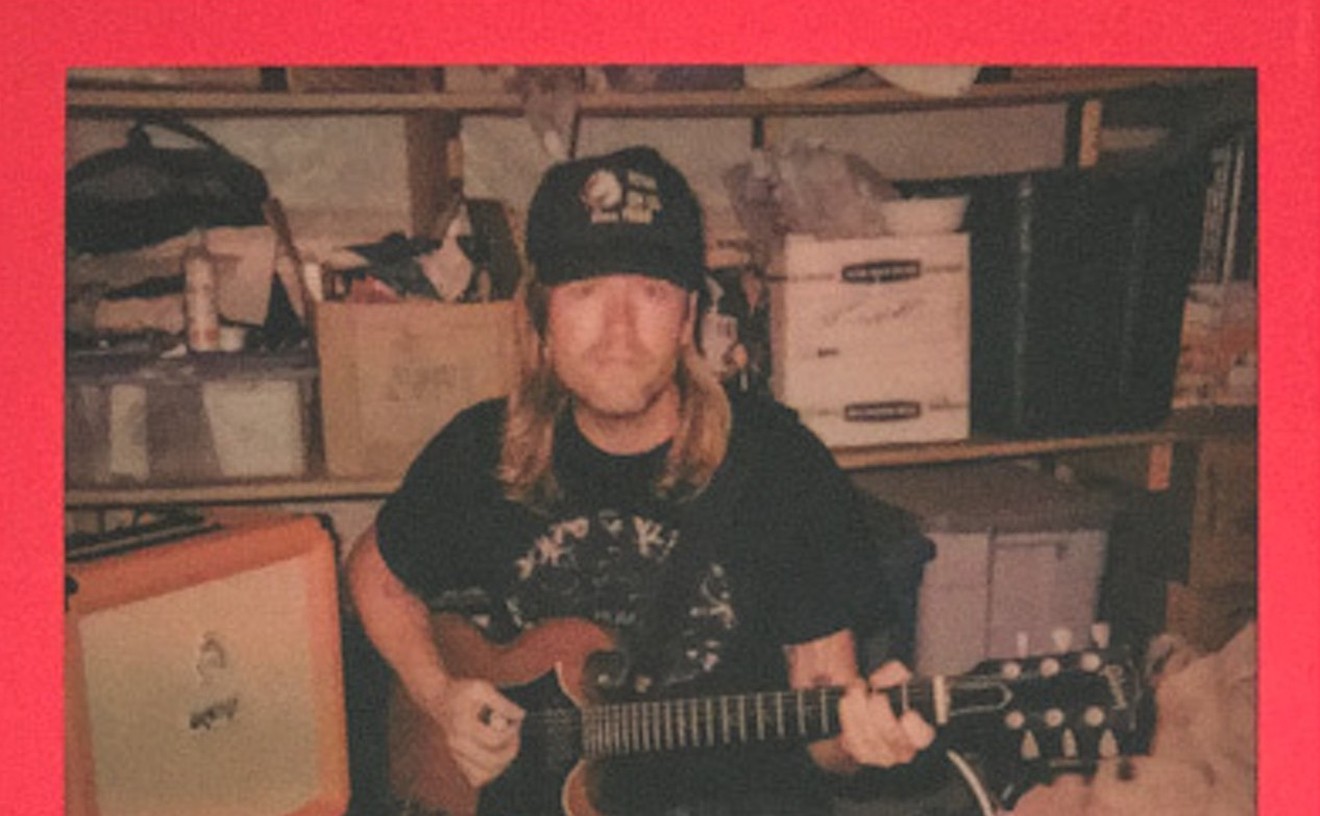The punks of the '70s wanted in; the punks of the '90s pretend to be outsiders while turning green with envy over Green Day. They avow eternal independence, but secretly crave stardom. And they always make a big deal out of their ideals, which have always been the province of the pampered. This was no problem for the first wave of punks, especially the beloved, overlooked, middle-class slobs the Dictators--the pride of the Bronx, the missing link between the great metal groups of the era (Blue yster Cult, Aerosmith) and crushing rawness of the New York underground (the New York Dolls, the Dead Boys).
The 'Tators once proudly proclaimed, "I won't be happy / Till I'm known far and wide / When I'm on the cover / Of the TV Guide" on the track "The Next Big Thing"--which they never were, of course. The Dictators sought and got major-label deals, and they made records completely true to themselves--not out of some bogus stab at "integrity," but because they couldn't do anything else. They should have been enshrined as great pioneers, the grand viziers of garbage culture and trash worship. But they weren't: There's never been much justice in the world of entertainment for men and women out of time. Would the would-be flag-wavers of our burnished era ever stoop so low, or really aim that high?
"We were a bunch of kids with similar tastes in music and senses of humor," says bassist-keyboardist-songwriter Andy Shernoff. "There was no MTV, no 'alternative music,' no nothing, except for hippie bands or classically trained musicians who were dull. Actually, it's a lot like that now!"
No surprise, then, that the Dictators' first new recording in almost two decades--a modest seven-inch single released last year on the ever-vibrant, ever-trashy indie Norton Records--was among the finest rock slabs of the year, not to mention punk slabs. And more recently came news that the Dictators would engage on their first cross-country jaunt since the turn of the decade. As they push 45, 48, 50, 55--whatever--one wonders why on earth the Dictators continue. Touring again and playing small clubs, they must be another bunch of lunkheads reuniting for one final stab at something, right? Wrong.
They never broke up. It only looked that way to those who saw guitarist Ross the Boss' metal maniacs Manowar; rhythm guitarist Scott "Top Ten" Kempner's Blasters-esque Del Lords, critics' darlings for a split split second; and Wild Kingdom, the band that featured Shernoff, Ross the Boss, and the Dictators' frontman, ex-wrestling roadie Handsome Dick Manitoba.
"We never really stopped playing around New York," Shernoff says. "There's always been a demand for the band to play. Promoters in Europe knew we were doing this, the money is good, and it's always fun. So even when we did other things, we could always return to being Dictators."
More specifically, they could return to being a massively amazing quintet of proud teengenerates turned middle-aged quasi-degenerates. Politically incorrect in the punk sense (longer hair, guitar solos, tempo changes, not quite as ironic or radical as their more earth-shattering brethren from Queens, the brothers Ramone) and lacking the idiot grandiosity and tenor-screech vocals of the typical metal band (Handsome Dick has perhaps a six-note range, and that's being generous), the 'Tators never fit in anywhere. This may have explained their commercial failure in the '70s. And their critical failure as well--that is, with the snobby snits who penned their dissent or outright apathy in the pages of The Village Voice, at the time the main bible for the Bowery boys and girls of CBGB.
Had these scribes possessed a single strand of perspicuity, they'd have noticed that the first truly punk record ever made was the Dicts' debut, 1975's Go Girl Crazy. Before the Ramones but after the Dolls, this out-of-nowhere masterpiece states the punk manifesto more clearly than the stuck-on-lefty MC5 or the wrecking-our-records-with-Seconal jamming of the Stooges. Paeans to throwing up, Mickey D's, and sopors (that's "quaaludes" to you whippersnappers); ludicrous Beach Boys parodies; gung-ho deconstructions of Sonny and Cher and the Rivieras; and an anthem called "Master Race Rock" that admonishes the listener, "Don't forget to wipe your ass"--this was so punk, it had zits in the grooves.
Richard Hell would art it up, the Ramones would strip it down, and Blondie would put a pretty face on it and go platinum, but punk was made in the shade by the Dictators--even if the history books don't say so. In the annals of New York rock, the band is most notorious for an incident in which Dick Manitoba was nearly de-brained at CBGB by transgender-legend Wayne (now Jayne) County for allegedly fag-baiting him/her. According to punk biography supreme Please Kill Me, the band was blackballed from the New York clubs until CBGB owner Hilly Kristal threw them a measly Monday-night gig, at which they promptly broke the house attendance record. Capitalism being the great equalizer, they were back.
Label No. 1, Epic, axed them after Go Girl Crazy became one of the worst-selling discs in the label's history. And so on they went, signed to Elektra at the same time critical darlings and CBGB stagemates Television were. Both bands then made a pair of fine discs for the label that did approximately nothing. Soured and disgusted, the Dictators continued to play New York and occasionally Boston and D.C., but for the most part, their history as a recording band ended there.
Until last year, when the 'Tators put out a seven-inch on Norton that was the vinyl gem of the year, a true-blue, flag-waving stomper called "Who Will Save Rock and Roll?" In this three-plus-minute rant, the band asks the new generation--with its nauseating forays into unforgivable sub-genres such as emo-core and other lapses into sissyhood--if they have the balls to save rock and roll. The last verse passes the torch: "My generation / Is not the salvation / So who will save / Rock and roll?" The Dictators are savvy enough to know it ain't them, babe, but they would like to know whether anyone out there is listening and ready to take up the task. If none of the youngsters want the job, the 'Tators are halfway done with a new disc, have re-released a pair of old ones, and show no signs of croaking.
If there's a reason the Dictators' cult is a tiny one, it's that the Dictators have always been a New York thing--like CBGB itself, or the appeal of Joe Torre. "The cultural and musical influences--the Dolls, Blue yster Cult, Mountain, the Fugs--are assimilated into our sound," Shernoff says. "If we are the bridge between the Dolls and the Ramones, that would be why. We're all from the same place".
But more than that, they exist now, as they did in 1975, as as a band out of time; the place they come from is rarely re-created with any authenticity or fervor. If you shut your eyes and pretend it's '78 again, that feels great, but only for a moment--it's a cocaine high all over again, an illusion. The Dictators--and pretty much anyone who ever had a beating heart that freezes up at the mass dehumanization of what was once semi-popular music--wish the new age had promise. Not an end but a beginning, which is what their single cries out for: If no one saves rock and roll, it finally deserves to die. Rest in peace.










